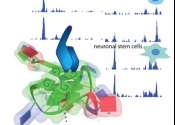Ring-billed gulls found able to pass the string-pull test
A team of researchers at the Memorial University of Newfoundland has found that the ring-billed gull is able to pass a widely used cognitive test called the string-pull test. They describe their results in a paper published ...









